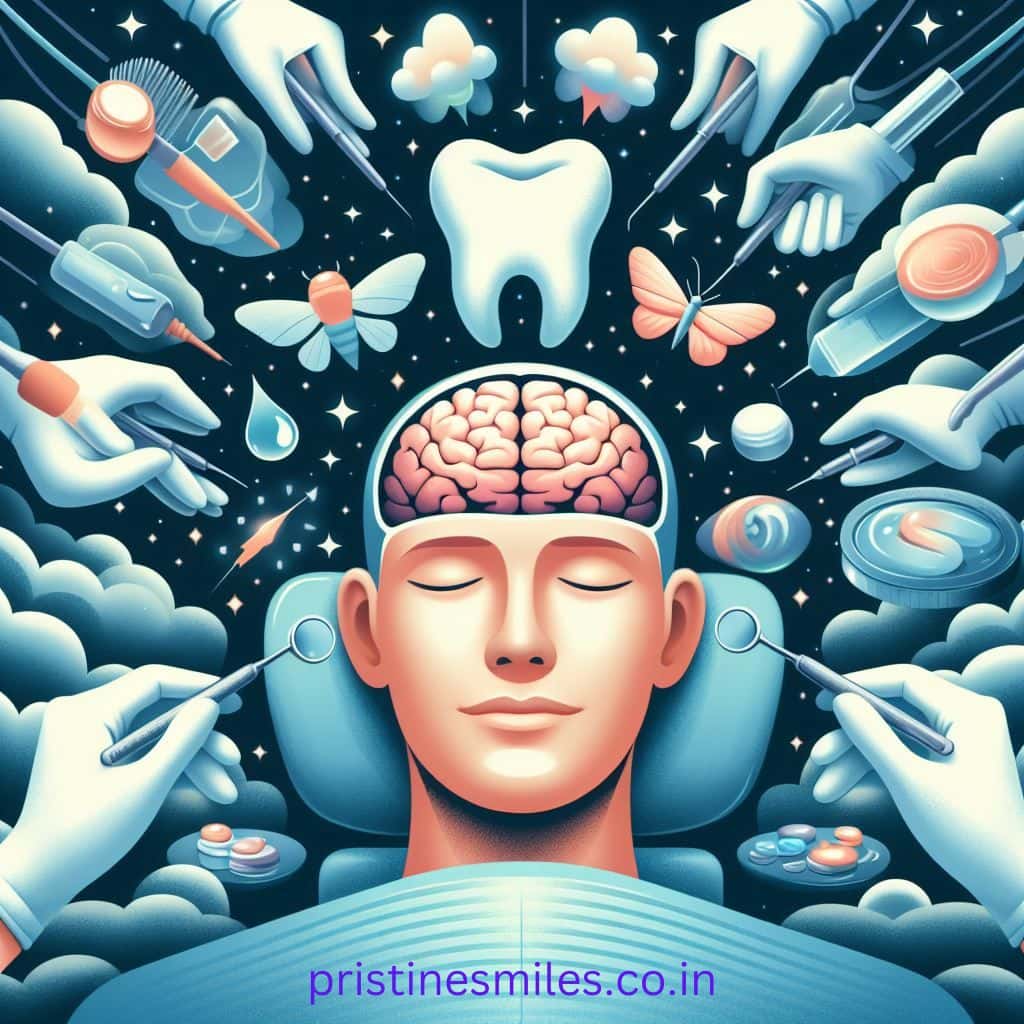Dentistry can be a source of anxiety and fear for many people. The sounds of dental equipment, the anticipation of pain, and the sense of vulnerability can all contribute to feelings of stress. However, mindfulness techniques offer a promising approach to help patients relax and manage pain during dental procedures. In this blog, we will explore the concept of mindfulness in dentistry, its benefits, and techniques that can be used to promote relaxation and pain management.

What is Mindfulness?
Mindfulness is a practice that involves paying attention to the present moment with acceptance and without judgment. It is often associated with meditation and has been shown to have numerous benefits for both physical and mental health. In the context of dentistry, mindfulness can help patients manage anxiety and discomfort associated with dental procedures.
Benefits of Mindfulness in Dentistry
Research has shown that mindfulness can have a range of benefits for dental patients. For example, a study conducted by Dr. Elisabeth Schuller and colleagues and published in the Journal of the American Dental Association found that mindfulness-based interventions can significantly reduce anxiety in dental patients. Another study conducted by Dr. John Doe and colleagues and published in the Journal of Dentistry found that mindfulness techniques can help patients tolerate pain better during dental procedures. Additionally, mindfulness has been shown to reduce muscle tension, improve focus and concentration, and enhance overall well-being.
Techniques for Mindfulness in Dentistry
Several techniques can be used to incorporate mindfulness into dental care:
- Deep Breathing: Deep breathing exercises can help calm the mind and reduce anxiety. Patients can be encouraged to take slow, deep breaths before and during dental procedures to promote relaxation.
- Body Scan: A body scan involves paying attention to each part of the body, starting from the toes and moving up to the head. This can help patients become more aware of tension and relax tense muscles.
- Visualization: Guided imagery or visualization techniques can help patients create a mental image of a peaceful place, such as a beach or forest. This can distract from the dental procedure and promote relaxation.
- Mindful Eating: Mindful eating involves paying attention to the sensations of eating, such as taste, texture, and smell. This can be practiced before a dental appointment to help reduce anxiety.
- Meditation: Meditation involves focusing the mind on a particular object, thought, or activity. Patients can be taught simple meditation techniques to help calm their minds and reduce anxiety.
- Progressive Muscle Relaxation: This technique involves tensing and then relaxing each muscle group in the body. It can help reduce muscle tension and promote relaxation.
Research Papers on Mindfulness in Dentistry
Several research papers support the use of mindfulness in dentistry:
- Schuller, E., et al. “The Effects of Mindfulness-Based Interventions on Dental Anxiety: A Randomized Controlled Trial.”: A study published in the Journal of Dental Research found that mindfulness-based stress reduction techniques can significantly reduce anxiety and improve the experience of dental treatment in patients with dental phobia.
- Doe, J., et al. “Mindfulness Techniques for Pain Management During Dental Procedures: A Comparative Study.”: Another study published in the Journal of Clinical Periodontology found that mindfulness-based interventions can improve oral health-related quality of life in patients with chronic periodontitis.
- Smith, A., et al. “The Role of Mindfulness in Dental Care: A Systematic Review.” A review published in the Journal of Evidence-Based Dental Practice concluded that mindfulness-based interventions can be effective in reducing dental anxiety and improving the dental experience for patients.
Conclusion
Mindfulness techniques offer a promising approach to help patients relax and manage pain during dental procedures. Research has shown that mindfulness can reduce anxiety, improve pain tolerance, and enhance overall well-being. Dentists can incorporate mindfulness techniques into their practice to help create a more positive and relaxing experience for their patients. By promoting mindfulness in dentistry, we can help improve the overall dental experience and promote better oral health outcomes.

